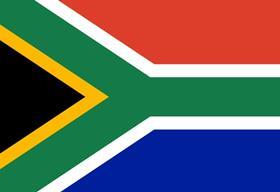
South Africa will not necessarily ship more fruit directly to Russia despite not being included in the imports ban, an industry spokesperson has said.
Jacques du Preez, product manager for South African grower group Hortgro, was speaking at the launch of the fruit industry’s annual promotional campaign ‘Beautiful Country Beautiful Fruit’.
He said that exports to Russia typically go through Europe, and are then classed as European produce, which means they are now unable to proceed further to Russia. But shipping directly to Russia takes around five days longer than shipping to Europe so it is not an easy option, he added.
“You can’t just jump into Russia, it is more complicated than that – so the ability of SA to ship directly to Russia will not be the saving grace although it does offer an opportunity. It is a positive and it is a negative.
“We are not sure what the exact effect of the Russian ban will be yet, but it will definitely put pressure on the European market, which is a big market for us.
“Usually most of what we send to Russia goes via the Netherlands. This will now be prevented from going further as it will be classed as EU produce,' he said.
Du Preez said the ban will cause congestion on the European market, and may have a knock-on effect on other markets as well, although he stressed that the overlapping of northern hemisphere stonefruit and early SA shipments at this stage does not seem to be a big problem.
“The carry-over stocks from European top fruit season usually cause a bit of pressure in the market, and this year they are expected to be relatively high,” he said.
Although the first crop forecasts for the SA stonefruit season will not be made until late October, with the first crop expected to reach the UK in late November/early December, du Preez said growing conditions are “good so far”.
“We’ve had a good winter and no real problems so far. We’ve also had quite a bit of rain so there’s lots of water in the dams for irrigation.
“Plantings have increased over the last five years. There will be more and more volumes coming from South Africa as those orchards mature,” he said.
SA sends 50 per cent of its stonefruit to continental Europe, and about 20 per cent to the UK. For top fruit, du Preez said Africa will probably become the biggest importer of apples this season, although the spread of Ebola virus is causing some uncertainty as some shipping lines are no longer going into certain African ports.



